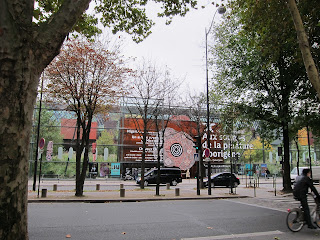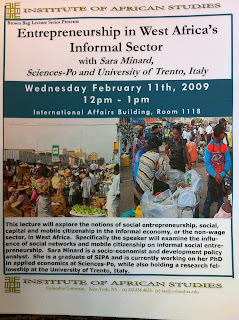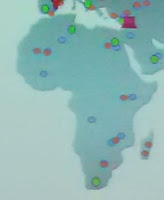Paris boasts a modern museum whose core permanent exhibitions are of traditional art in Africa, Asia, Oceania, and the Americas. The Musée du Quai Branly , located close to the Eiffel Tower, is a modern and "green" structure opened to the public in 2006. Quai Branly Museum street view La Rivière Entering the museum is in itself an adventure--first through outdoor winding paths, in the garden, and then an interior winding path, in itself a work of art called the "River" showing words projected in the ground, moving like water. It's quite a trip to reach the top, where the entrance to the permanent exhibits is, as well as to the current exhibition, "The Art of Hair." Below are a few photos of the Africa section. As usual in all African traditional art exhibits, there are many pieces from the Grassland Bamiléké region's prolific artists. However, to my great surprise, there was one piece, not just from Douala, but specifically from Deido,...









